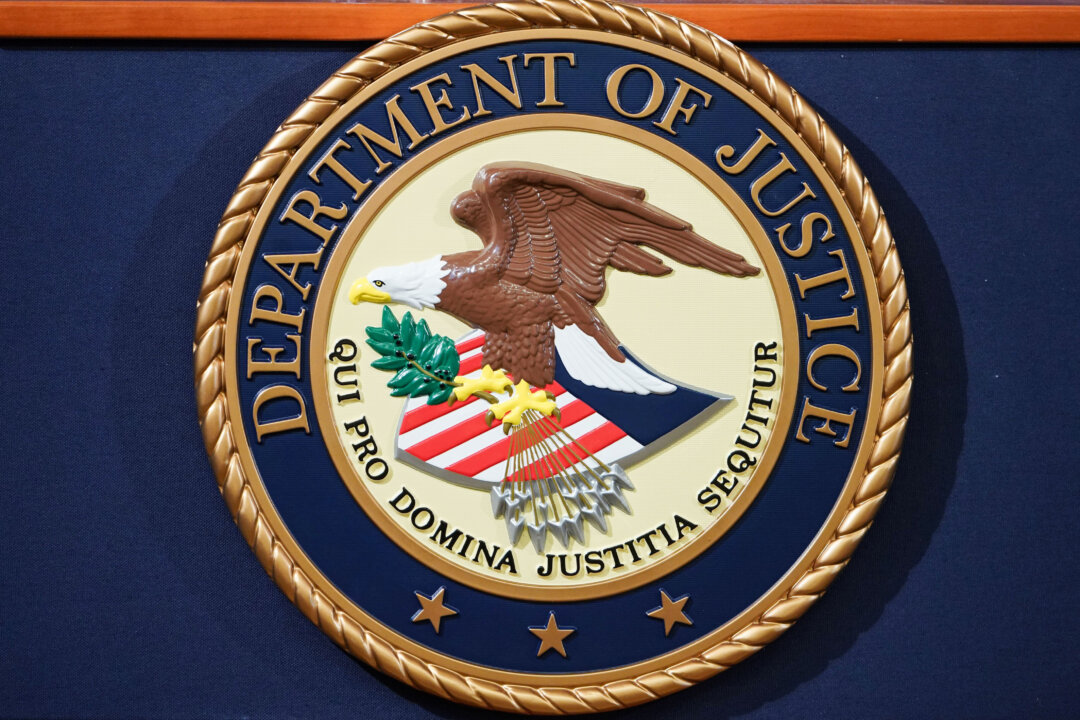Trump has indicated he would pardon at least some of the Jan. 6 defendants.
Multiple federal judges have rejected attempts by defendants alleged to have been involved in the Jan. 6, 2021, breach of the U.S. Capitol to delay their cases amid arguments about how the incoming Trump administration could impact their cases.
U.S. District Judge Christopher Cooper issued a brief order on Nov. 11 denying defendant Stephen Michael Baker’s request to vacate all dates and hearings in his case and set a status conference for after Trump’s inauguration.
Baker’s motion followed similar ones from defendants such as Anna Lichnowski and Christopher Carnell, whose respective judges also denied their motions. Defendants William Pope and Larry Brock have also filed motions but their court dockets hasn’t shown any responsive orders from the judges assigned to their cases.
Trump has indicated that he would pardon at least some defendants, but it’s unclear to whom that would apply.
“We will treat them fairly,” Trump said in January of 2022. “And if it requires pardons, we will give them pardons, because they are being treated so unfairly.”
More recently, during an event in July, he was asked about individuals who allegedly assaulted police officers. Trump said he would pardon them “if they’re innocent.” He added that “they were convicted by a very tough system.”
The defendants face a myriad of charges, including assaulting, resisting, or impeding certain officers; disorderly or disruptive conduct; knowingly entering or remaining in any restricted building or grounds without lawful authority; and obstruction of an official proceeding.
According to data collected by NPR, more than 1,500 people have been charged in relation to Jan. 6, with nearly 1,000 pleading guilty. So far, more than 1,000 people have been sentenced with 64 receiving prison time.
Matthew Graves, the U.S. Attorney for the District of Columbia, responded to multiple defendants’ motions by stating that “[t]here is a public interest in the prompt and efficient administration of justice.”
In Pope’s case, Graves said that “[a]t this time, the defendant’s expectation of a pardon is mere speculation, and the Court should proceed as it would in any other prosecution.”
William Shipley, an attorney for Baker, told Judge Christopher Cooper on Nov. 10: “Before the Government makes the claim that the ‘people’ have an interest in the administration of justice as reflected in the Speedy Trial Act, Defendant Baker would point out that the ‘people’ on behalf of whom the Government purports to speak made themselves heard clearly on November 5, and that should mean something to the Department of Justice without regard to what Administration is now in charge.”
He also cited Special Counsel Jack Smith’s request to vacate the dates outlined by Judge Tanya Chutkan in Trump’s election interference case. Shipley told Cooper the court faced unique circumstances given Trump’s pledge to pardon defendants and Smith basing his filing on the election outcome.
Smith had requested Chutkan vacate an ongoing schedule “to afford the Government time to assess this unprecedented circumstance and determine the appropriate course going forward consistent with Department of Justice policy.” DOJ’s longstanding policy has opposed the prosecution of a sitting president.
Concern about DOJ policy, Graves said in his filing to Cooper, was “not similarly implicated in [Baker’s] case, where the defendant is a private citizen.”
On Nov. 7, U.S. District Judge Reggie Walton denied a request by Lichnowski to delay her sentencing until after Trump’s inauguration.
An attorney for Lichnowski argued that “[t]he defendant’s offenses do not involve violence, and she does not have a criminal record. Therefore, she is a good candidate for a pardon.”
Like Shipley, Lichnowski’s attorney argued that delaying proceedings would help save resources. In that case, Walton said that Trump’s potential pardon was “irrelevant.”
“[T]he potential future exercise of the discretionary pardon power, an Executive Branch authority, is irrelevant to the Court’s obligation to carry out the legal responsibilities of the Judicial Branch,” he said.
He noted that both Carnell’s request and that of another defendant, Mitchell Bosch, had been rejected by other judges. In Bosch’s case, his attorney argued on Nov. 6 that he couldn’t “receive a fair trial in the District of Columbia … due to the heightened public emotion and highly publicized media attention surrounding” the presidential election.
Bosch’s motion noted that more than 90 percent of the electorate in Washington voted for Vice President Kamala Harris.
Graves described Bosch’s concerns about the jury pool as “speculation and conjecture.” U.S. District Judge Dabney Friedrich said the court’s jury selection process, otherwise known as voir dire, would “be adequate to screen out potential jurors who cannot be fair and impartial.”
“To mitigate the risk of prejudice to the defendant, the Court will add a question to its general voir dire questions and ask the jurors follow up questions as appropriate,” Friedrich said.

